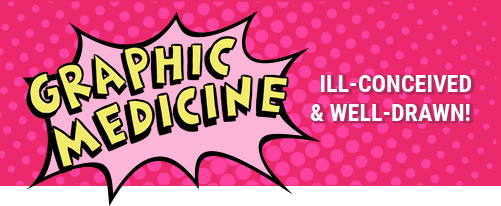Class 5: Health Care Through the Eyes of the Clinician
Introduction:
This class examines the challenges and responsibilities of caring for others from the clinician’s perspective. Though power imbalances between clinicians and patients are inherent in the relationship and thus unavoidable, it is also the case that clinicians are fallible. Like everyone else, doctors and other health professionals experience doubts, make mistakes, and have imperfections.
The suggested readings for this class prepare students to discuss and engage in activities that explore clinicians’ perspectives on the unique privilege and responsibility of caring for others. In her book Taking Turns, MK Czerwiec tells the story of a young nurse caring for patients with AIDS at the height of the AIDS crisis in the 1990s. She befriends some patients, cares deeply for them, and experiences the ups and downs one would expect when people around her die. Ian Williams’s The Bad Doctor: The Troubled Life and Times of Dr. Iwan James tells the story of a physician who struggles with his day to day interactions with patients and colleagues as he reveals demons from his own past, blurring the line between doctor and patient. “Missed It” tells a story from Green’s medical training which haunts him as he practices medicine.
Students may engage in two activities in this class. The first activity explores how a simple interaction can look very different depending on what preconceived ideas an observer brings to it. Students imagine and complete a conversation between a doctor and patient by filling in the text bubbles in the handout. [Excerpted and modified from Wrinkles with permission]. Using their filled text bubbles, students examine different dialogues and discuss what was unexpected about some interpretations and assumptions; how they came up with different stories from the same set of basic information; and what implications the differences may have for health care. After the discussion, students create their own story by following the activity outlined in The Clinician’s Perspective adapted from Ivan Brunetti. Alternatively, students use the Four-Panel Template to draw what it is like to treat a patient who is having a heart attack.
Class Resources
- Czerwiec MK. Taking Turns: Stories from HIV/AIDS Care Unit 371. University Park, PA: The Pennsylvania State University Press, 2017.
- Williams, Ian. The Bad Doctor: The Troubled Life and Times of Dr. Iwan James. University Park, PA: The Pennsylvania State University Press, 2015.
- Green, Michael J. “Missed It.” Annals of Internal Medicine March 5, 2013. http://annals.org/aim/article/1656688/missed
Discussion Questions
- Discuss Taking Turns
- Health care providers often accumulate stories about traumatic life events. How do you think they should process these stories when they raise difficult or challenging questions about life/death/relationships?
- How do health care providers recognize when they are experiencing compassion fatigue? If they notice this, what should they do about it?
- How should a nurse or other clinician deal with the emotional connections they form with patients?
- Are there boundaries between clinicians and patients that should never be crossed, and if so, what are they?
- Do you think any boundaries are crossed in Taking Turns?
- Discuss The Bad Doctor
- What is meant by the title of Ian Williams’ graphic narrative? Is the protagonist a “bad doctor?” Why do you think he titles the book in this way?
- When doctors harbor negative feelings toward a patient, how should they deal with this?
- Is it appropriate for clinicians to share details of their personal lives with patients? Why or why not? Which details?
- What is the role of the character Arthur, and what is his importance in the life of Iwan James?
- Discuss whether clinicians are diminished when they expose their doubts, insecurities, and errors
- Discuss “Missed It”
- What was the mistake described in Green’s “Missed It”?
- How did this affect those involved?
- Was this an avoidable error? What could have been done differently?
- Discuss how cognitive biases can lead to diagnostic error
- Readers sometimes assume that the author of a story and the protagonist are one and the same. Does it matter whether authors are writing about themselves versus a fictionalized account? Do the described events need to be literally true, or true enough?
- Discuss daily diary entries as a class.
- If students are comfortable doing so, have volunteers read their diary entries for the week while the other students listen and draw something they heard on 4 x 6 index cards. Invite several different people read their diary entries, and then have the students walk around the room and take a look at the images people drew from what they heard.
- How did the activity affect the way you observed your surroundings?
- What did you hear that was surprising?
- Do you remember seeing or hearing things that you wouldn’t have noticed if you hadn’t been assigned this diary?
- Other thoughts about the daily diary?






